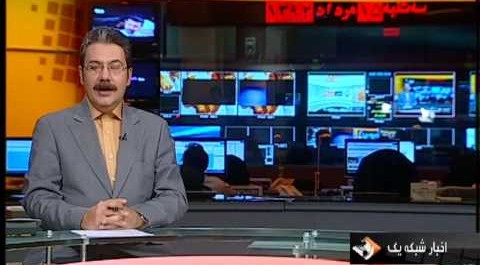PHOTO: Is “a monopoly of voice and picture” being broken in Iran?
Rohollah Faghihi, a journalist based in Iran, writes for Tehran Bureau and The Guardian:
For 25 years, the Islamic Republic of Iran Broadcasting dominated television in Iran. However, State TV has been losing viewers to online rivals recently.
“Online channels and social networks are a big challenge for state TV, because they are breaking its monopoly,” Majid Rezaian, professor of journalism at the Islamic Azad University, told Tehran Bureau.
In response IRIB has launched new shows, but it has been hampered by its political approach as a steadfast critic of President Hassan Rouhani and his policies. IRIB’s coverage of the nuclear talks with world powers was seen as hostile by government supporters, with several documentaries attacking both Foreign Minister Mohammad Javad Zarif and the deal he was working to achieve.
Zarif, who some consider a national hero, is not welcome on Iran’s State TV. When Navad, its most popular show, spoke to him in December, the interview was not broadcast because IRIB managers blocked it.
IRIB also has conservative critics. MP Hamid Rasaie wrote on his Telegram channel in January: “If IRIB had covered the fall of the stock market index, the Rouhani administration would have taken action.”
Even the conservative Basij News, run by Iran’s paramilitary volunteer militia, is helping break IRIB’s monopoly. Recent interviews with controversial figures — including the lawyer of Babak Zanjani, a tycoon sentenced to death for corruption — have tackled issues rarely raised on state television.
Online broadcasting has found their way into people’s lives, whether Irib likes it or not. Despite an official ban on the media mentioning Mohammad Khatami, the former reformist President released a short clip on social media, including Telegram, encouraging people to vote for reformists and “moderates” in February’s elections. Supporters then spread Khatami’s message on social media.
Rezaian believes the elections were proof of changing times for IRIB. “I think we witnessed the monopoly of voice and picture being broken by ordinary and civilised people,” he said. “Iran’s society has started taking a professional approach with social networks and online channels.”
Mahdi Shakouri, creator of Iran’s popular online channel Aparat, believes the Internet intrinsically undermines monopolies. “When you post a video interview or any other clips, there is no longer a need for permission from any governmental organisation,” he told Tehran Bureau.
Shakouri regards Aparat as the Iranian version of YouTube and claims it has 25 million viewers every month. Looking to increase those numbers, Aparat has launched a show similar to the BBC’s HardTalk. Night Vision, presented by Reza Rashidpour, has interviewed several officials, including Zarif.
The Foreign Minister pulled few punches in criticising State television for not “broadcasting news and reports that will make Iranians proud” and in arguing Iran had thwarted the United States’ desire to eliminate Tehran’s nuclear programme. “The world describes [the nuclear agreement]…as a victory for Iran,” Zarif told viewers. “Why doesn’t IRIB?”
Among new Farsi internet channels is TV Plus, which has focused on interviewing celebrities since launching two years ago. FilmNet has also been attracting viewers, featuring two-hour interviews conducted by acclaimed director Fereidoun Jeyrani, with controversial actors during the Fajr Film Festival.
Aparat has also created another website, Filimo, which screens Iranian and foreign movies, a further means of undermining state television.
According to the Iranian news site Cinema Press, the new channels, and especially the Night Vision program, are responsible for IRIB’s decision to resume the famous talk show Nation Park, which was scrapped in 2012 after its host Mohamamd-Reza Shahidifar criticised the managers at State television.
But IRIB refuses to make any of its own content available online, apparently in a determination to maintain a strict demarcation between state and online media. Shakouri argues this is both short-sighted and detrimental for the industry as a whole.
“We’re not allowed to advertise on state TV, they’ve banned us,” he said. “But if they don’t allow us to grow, people will flock to the American YouTube. We’d like to cooperate with state TV. This is a national issue — we care about our country, and don’t want our people to use foreign websites.”

